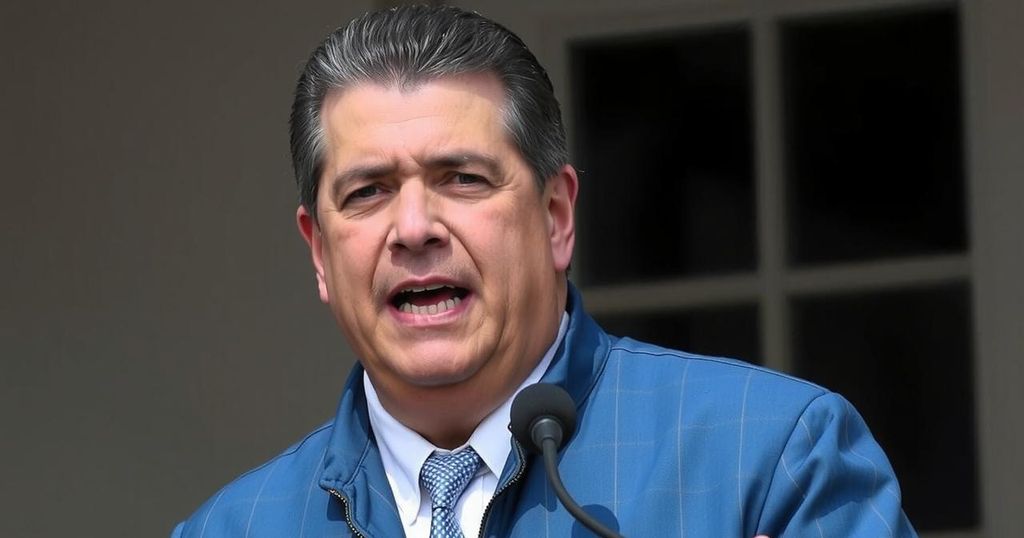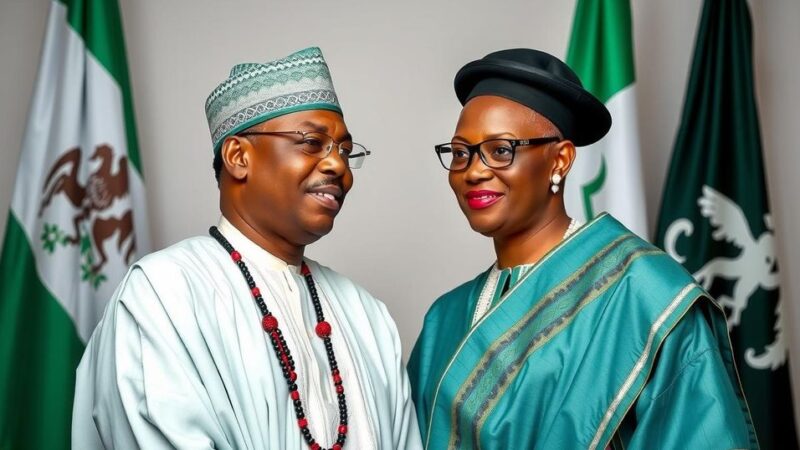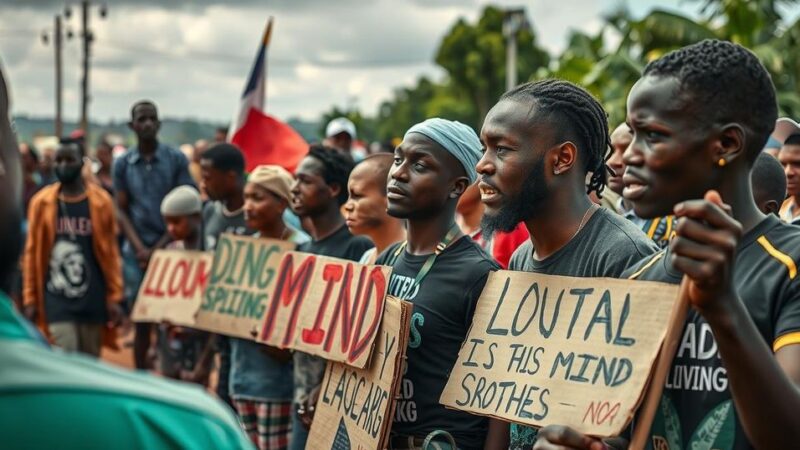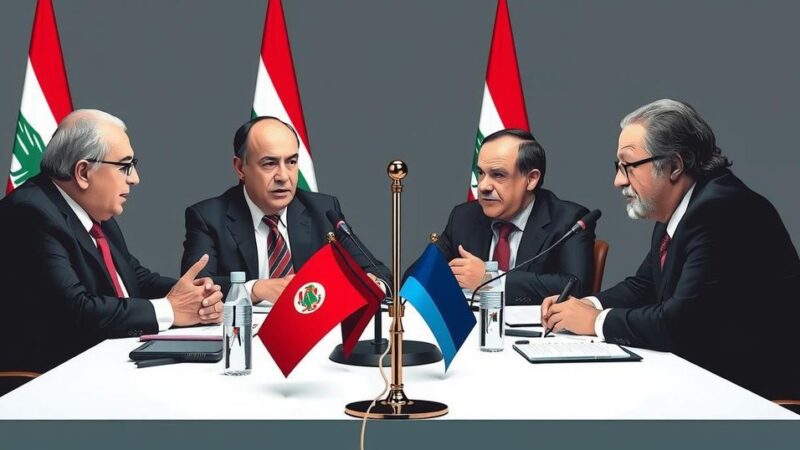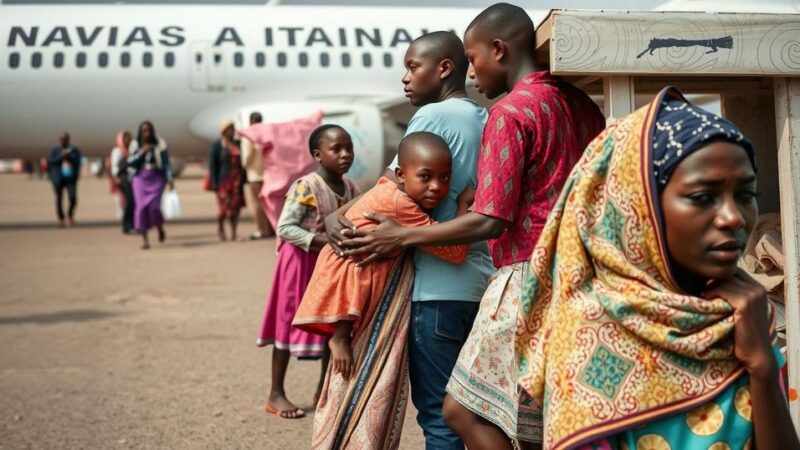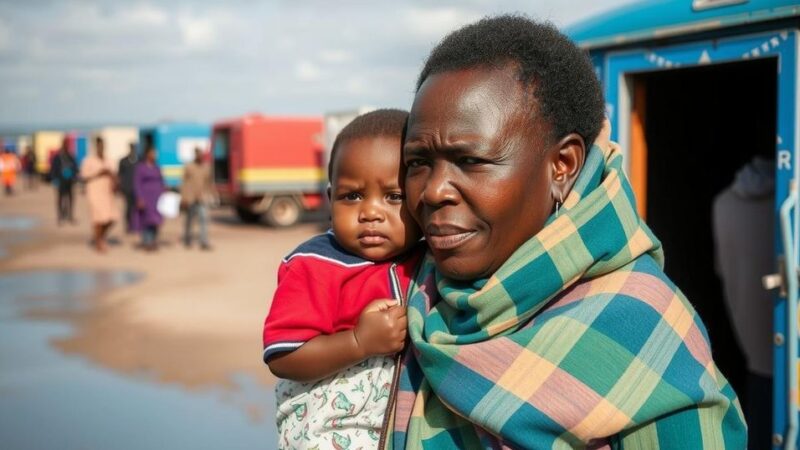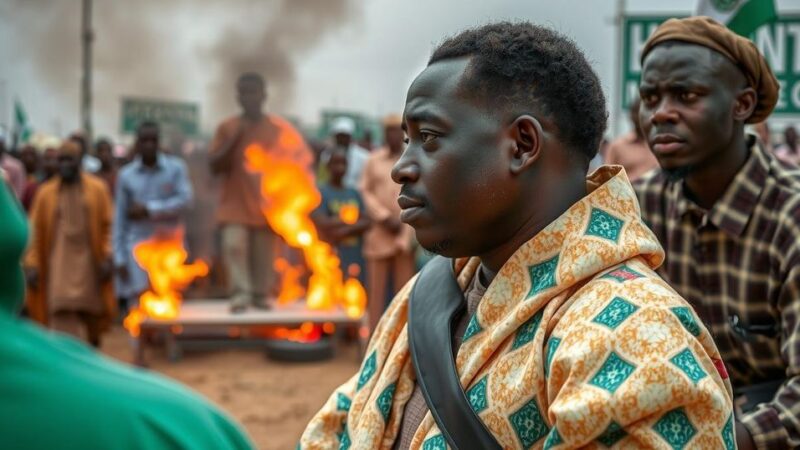The Venezuelan government has denounced U.S. interference ahead of Nicolás Maduro’s inauguration, especially in relation to Edmundo González’s recognition as president-elect. Amidst rising tensions, Venezuela has severed diplomatic ties with Paraguay for its support of González. This political turmoil reflects an ongoing struggle for legitimacy between Maduro’s regime and opposition forces, exacerbated by the U.S. involvement.
The Venezuelan government has publicly condemned the Biden administration’s recent actions, which it perceives as interference in Venezuelan affairs, specifically regarding the recognition of Edmundo González Urrutia as the “president-elect.” In a communique dated January 7, 2025, Venezuela’s Foreign Ministry criticized the U.S. administration, asserting that it resorts to outdated intervention strategies to support minor political figures while disregarding the will of the Venezuelan populace.
Following this, President Joe Biden welcomed González to the White House, underscoring a commitment to support opposition efforts aimed at restoring democracy in Venezuela. The meeting, characterized as cordial and fruitful by González, focused on aligning strategies for addressing the ongoing political crisis in Venezuela. However, the Venezuelan authorities responded firmly, emphasizing that they would not tolerate any actions meant to destabilize the nation.
In anticipation of Nicolás Maduro’s inauguration for his third term, tensions escalated after Paraguay recognized González as the president-elect. As a result, Venezuela severed diplomatic ties with Paraguay, accusing it of yielding its foreign policy to external powers. This decision marked a significant development, illustrating the sustained friction between the Venezuelan government and the international community, particularly the U.S. and allied nations.
The political landscape in Venezuela remains fraught, as González, facing an arrest warrant for various charges, has voiced intentions to return to Venezuela for his inauguration planned for January 10. Meanwhile, opposition leaders question the legitimacy of the electoral results, while the government accuses them of instigating violence following the election, during which Maduro claimed victory over González in a tightly contested race.
Amid these challenges, Venezuelan officials assert their commitment to maintaining peace and constitutional order, as demonstrated by Defense Minister Vladimir Padrino López’s declaration of support for Maduro amidst calls for military backing from González. This illustrates a clear divide between the ruling government and opposition forces, layering the conflict with potential implications for regional stability as Maduro prepares to officially assume office.
The Venezuelan political context is characterized by a protracted crisis, exacerbated by economic struggles and the controversial leadership of Nicolás Maduro. Following controversial elections, political opposition has rallied behind figures such as Edmundo González Urrutia, who claims electoral victory by disputing Maduro’s legitimacy. Tensions between the Venezuelan government and the U.S. escalate as the latter expresses support for opposition candidates, prompting Caracas to respond defiantly while reaffirming its sovereignty and commitment to its governance. The situation is further complicated by regional geopolitical dynamics and the historical alignment of various Latin American governments, some of which have taken stances against Maduro, creating a fractious environment amidst calls for democratic reforms.
In conclusion, Venezuela’s rejection of U.S. interference highlights ongoing tensions as Nicolás Maduro prepares for his inauguration amid claims of election irregularity and foreign involvement in domestic politics. The strong response from Caracas, coupled with the severing of diplomatic ties with Paraguay, underscores the delicate balance of power in the region. As opposition figures like Edmundo González position themselves in the political landscape, the future of Venezuelan democracy remains uncertain, with challenges to stability anticipated as the government asserts its authority.
Original Source: venezuelanalysis.com

